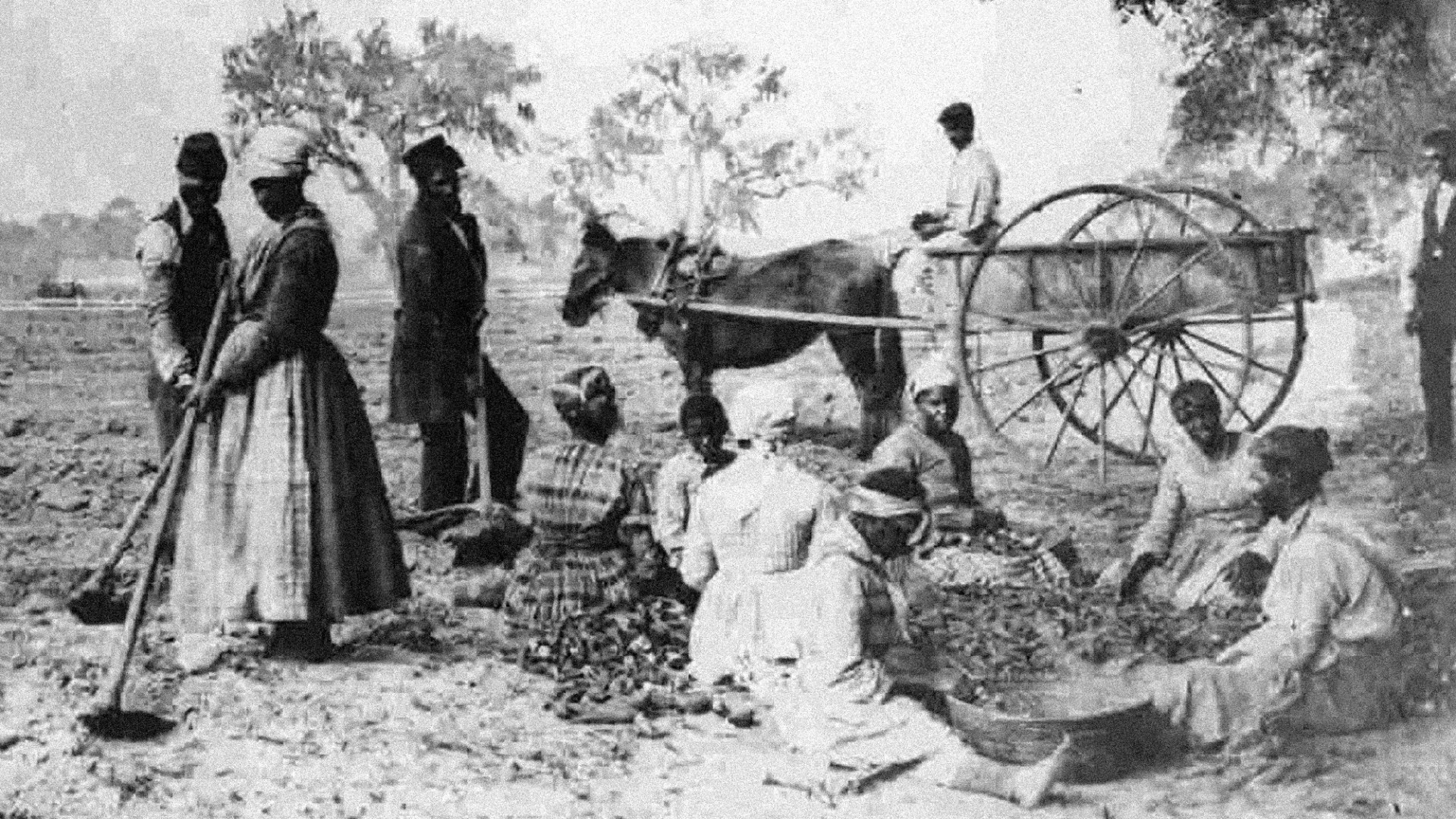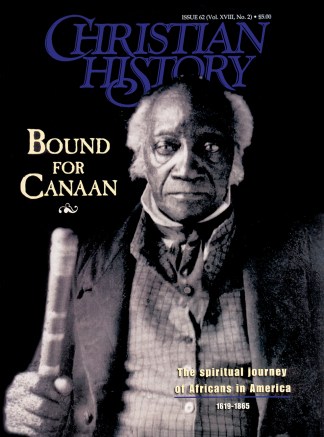She'd Be A-Prayin'
My mother, all de time she'd be prayin' to de Lord. She'd take us chillun to de woods to pick up firewood, and we'd turn around to see her down on her knees behind a stump, a-prayin'. We'd see her wipin' her eyes wid de corner of her apron—first one eye, den de other—as we come along back. Den, back in de house, down on her knees, she'd be a-prayin'.
—Rebecca Grant
Good Bye, Child
While traveling in Delaware, a child of a slave was sold: As the colored woman was ordered to take it away, I heard Fannie Woods cry, "O God, I would rather hear the clods fall on the coffin lid of my child than to hear its cries because it is taken away from me." She said, "Good bye, Child."
We were ordered to move on, and could hear the crying of the child in the distance as it was borne away by the other woman, and I could hear the deep sobs of a broken hearted mother. We could hear the groans of many as they prayed for God to have mercy upon us and give us grace to endure the hard trials through which we must pass.
—Fannie Woods
Welcoming the Baby
Whenever white folks had a baby born, den all de old niggers had to come th'ough the room, and the master would be over 'hind the bed, and he'd say, "Here's a new little mistress or master you got to work for." You had to say, "Yessuh, Master," and bow real low, or the overseer would crack you.
—Harriet Robinson
Religion With Filling
That religion I got in them way-back days is still with me. And it ain't this pie-crust religion, such as the folks are getting these days. The old-time religion had some filling between the crusts.
—Prince Bee
Turning Loose
On Sundays, us would git tergether in de woods an' have worship. Us could go to de white folks' church, but us wanted ter go whar us could sing all de way through, an' hum 'long, and shout—you all know, jist turn loose lak.
—Emily Dixon
Bloodied Prayer
One night Joe an' my mammy an' some more slave wus down on deir knees prayin' fur de good Lord to sot dem free, an' Frances [a house slave] wus slippin' round de corner uf de house an' heard what dey was sayin'. An' she goes back to de house an' tells de old marse [master], an' he sont [sent] de oberseer down dar an' brung ebery one uf dem to de stake, an' tied dem, an' whupped dem so hard dat blood come from some uf dem's backs.
—July Halfen
Revealed Freedom
I've heard 'em pray for freedom. I thought it was foolishness, then, but the old time folks always felt they was to be free. It must have been something 'vealed [revealed] unto 'em.
—Anonymous
Copyright © 1999 by the author or Christianity Today/Christian History Magazine. Click here for reprint information on Christian History.











